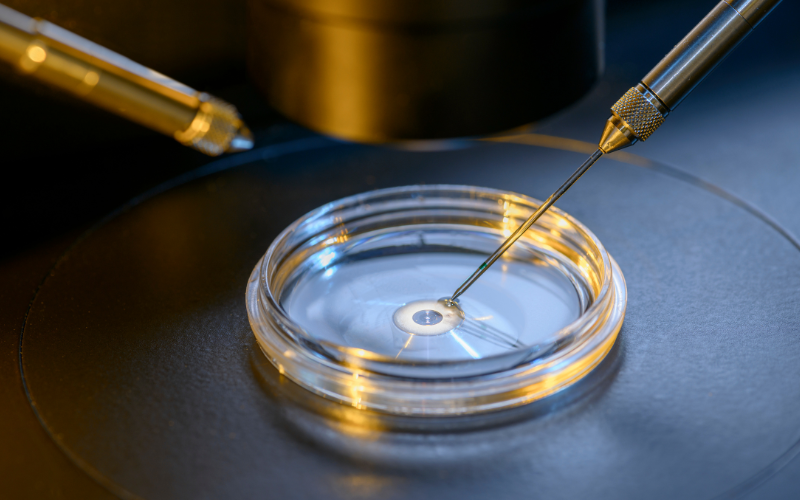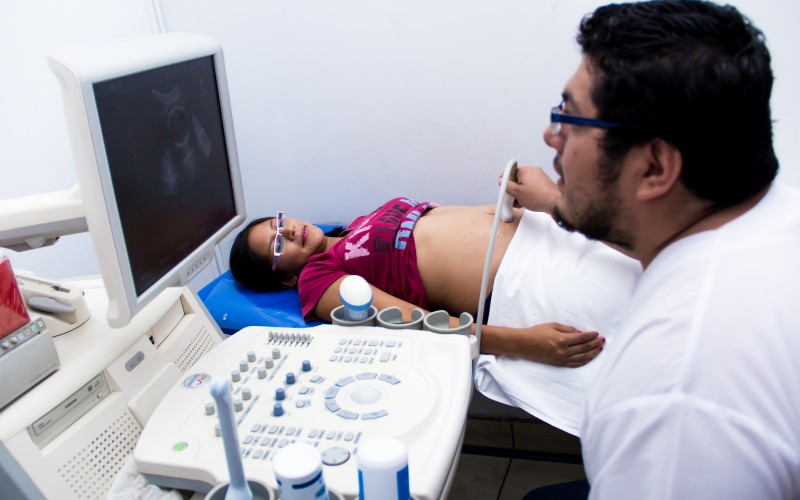Why IVF Fails: 6 Hidden Reasons No One Tells You!

REVIEWED BY Dr. Lakshita Saini ((MBBS, MS Obs & Gynae) on 24 october 2025.
You took every injection on time, followed every diet tip your doctor gave, and prayed for those two pink lines, but the result came back negative. Your heart broke. Again.
It’s confusing when everything appears to be perfect. The embryos are healthy, the reports are fine, yet there’s still no pregnancy. You start to question your body, your doctor, and even your faith.
Here’s something most people don’t tell you. IVF is not only about science or technology. It’s also about timing, health, mindset, and a few hidden reasons that can quietly affect the outcome.
In this article, we’ll talk about why IVF fails even when everything looks perfect, the six hidden reasons behind it, and what you can do before your next cycle to improve your chances of success. This journey is tough, but it’s not the end of your story.
The Heartbreak No One Talks About

Every couple who goes through IVF knows this moment, the long wait, the rising hope, and then the heartbreak when the result says negative.
It’s not just another failed attempt. It’s an emotional storm that mixes sadness, confusion, and fear all at once. Let’s talk about what really happens behind that silence.
1. The Waiting Game
The two-week wait after embryo transfer feels like forever. Every twinge or cramp feels like a sign, every symptom feels like hope. But when the result turns out negative, the silence feels louder than words.
2. The “Why Me” Question
You followed every instruction, ate right, stayed positive, yet it still didn’t work. You start wondering, “Did I do something wrong?”
In reality, IVF failure isn’t always about what you did or didn’t do. Sometimes the body just needs more time or a slightly different approach.
3. The Silent Pain
People might tell you to stay strong, but only you know what that emptiness feels like. You smile in public, but at night, the tears come quietly. And that’s okay. It’s okay to feel everything.
4. The Financial and Emotional Toll
IVF is expensive, not just in money, but in energy, emotions, and hope. Each cycle takes a piece of your strength, but somehow, you keep going. Because your dream of holding your baby keeps you moving forward.
5. You’re Not Alone
Thousands of couples go through the same heartbreak. Some need one more cycle, others find success after changing a few things. A failed IVF doesn’t mean the end of your story. It just means your journey needs a new plan, a little more understanding, and the right support.
What Actually Happens in IVF?

If you’ve ever wondered what really happens during IVF, let’s walk through it together.
IVF, or In Vitro Fertilization, means helping your egg and your partner’s sperm meet outside your body in a lab. Once the embryo forms, it’s gently placed back into your uterus to try and start a pregnancy.
Here’s how the process usually works:
- Hormone stimulation – You take medicines that help your ovaries produce several eggs instead of just one.
- Egg retrieval – The mature eggs are collected through a short and safe procedure.
- Fertilization – The eggs are combined with sperm in a lab to form embryos.
- Embryo growth – The healthiest embryos are nurtured for a few days.
- Embryo transfer – One or more healthy embryos are placed into your uterus.
- The two-week wait – Those 14 days feel endless as you hope for implantation.
It sounds so logical, right? But even when everything seems perfect, IVF doesn’t always work on the first try. Sometimes, the embryo doesn’t attach. Sometimes, the uterus isn’t ready. And sometimes, there’s simply no clear reason.
IVF is a balance of science, timing, and your body’s natural readiness. Knowing how it works helps you understand where things might go off track and how to improve your chances next time.
Common Reasons Why IVF Fails
When a doctor says everything looks fine, your eggs are good, sperm look normal, and embryos are healthy, yet the result is negative, it can feel like a mystery. IVF failure is rarely caused by just one thing. Usually, several small factors come together and affect the outcome.
Let’s look at some of the most common reasons.
1. Egg or Sperm Quality

Even if reports look okay, the quality of eggs and sperm matters a lot. Poor-quality eggs may not fertilize properly, and weak sperm might struggle to create strong embryos. Age, stress, lack of sleep, or habits like smoking can quietly affect the quality.
2. Embryo Issues
Not every embryo is capable of becoming a healthy baby. Some embryos may look perfect under the microscope but have genetic problems that stop them from growing or implanting. This is one of the most common hidden causes of IVF failure.
3. Uterus Not Ready for Implantation

Sometimes, the uterus is simply not ready to receive the embryo. The lining may be too thin or not in sync with the embryo’s growth. Even small issues like fibroids or inflammation can lower the chances of implantation.
4. Hormones Out of Balance
Hormones play a major role in every step of IVF, from egg growth to embryo attachment. If levels of estrogen, progesterone, or thyroid hormones are not in balance, it can quietly affect the chances of success.
5. Hidden Health or Genetic Problems

Conditions like PCOS, endometriosis, or autoimmune issues can make it harder for the embryo to implant. Sometimes there are genetic factors that regular tests do not detect, and these can also affect the results.
6. Lab or Doctor Related Factors
IVF success also depends on the clinic’s technology, lab quality, and the doctor’s experience. Even the smallest difference in how embryos are handled or how timing is managed can make a big difference. That is why choosing the right fertility expert really matters.
Each of these reasons can be understood and improved once identified. That is the positive part because every failed IVF teaches something new about your body and helps you prepare better for the next try.
In the next section, let’s talk about how your mind and body work together and why your emotions can influence your IVF journey more than you might imagine.
Your Mind and Body Both Play a Role

IVF is not only a physical journey. It can take a big toll on your mind, too. All the waiting, hoping, and overthinking can quietly affect how your body responds. When stress builds up, your body focuses on coping instead of preparing for pregnancy. That can disturb your hormones and make it harder for the embryo to settle.
You don’t need to force positive thinking, but try to stay calm and gentle with yourself. A peaceful mind helps your body stay in balance and ready for a new life. Simple things can help you walk outside, have a chat with your partner, music, or do deep breathing before sleep.
IVF works best when your mind and body support each other. The calmer you feel, the stronger your chances become. Next, let’s see what you can do before your next IVF cycle to improve your success.
What You Can Do Before the Next IVF

A failed IVF cycle doesn’t mean the end of your journey. It’s a chance to pause, reflect, and prepare better for the next one. With a few smart changes in your medical plan, lifestyle, and mindset, you can improve your chances of success the next time you try.
1. Get the Right Tests Done
Sometimes the reason for failure hides behind untested issues. A few extra checks can reveal what needs attention.
What to do:
- Ask your doctor for advanced fertility or genetic tests
- Check thyroid, vitamin D, and hormonal levels
- Get screening for PCOS, endometriosis, or autoimmune issues
- Review past reports carefully with your specialist
2. Take Care of Your Diet and Lifestyle
Your body is the foundation of your fertility. The healthier you feel, the better your chances of success.
What to do:
- Eat fresh, home-cooked meals with more fruits and vegetables
- Include foods rich in iron, protein, and omega-3s
- Sleep at least 7 to 8 hours daily
- Avoid smoking, alcohol, and processed foods
- Stay active with light exercises like walking or yoga
3. Choose the Right Doctor and Clinic
A caring and experienced doctor makes all the difference. IVF success is not just about machines and reports, but also about trust and personal care.
What to do:
- Look for a doctor who explains things clearly and listens
- Check the clinic’s lab quality and success rates
- Ask about the team’s experience with cases like yours
- Choose a place where you feel heard and supported
4. Keep Hope Alive

Your emotions are part of the healing process. A calm and hopeful heart gives your body the strength it needs to keep going.
What to do:
- Practice meditation or deep breathing for a few minutes daily
- Talk openly with your partner or a counselor
- Read or listen to stories of IVF success for inspiration
- Remind yourself that this is a journey, not a race
Preparing for your next IVF cycle is not about perfection; it’s about progress. Every small step you take improves your chances and brings you closer to your dream.
When you’re ready, reach out to a trusted fertility expert who can guide you through your next step with care and clarity.
Frequently Asked Questions
1. Why does IVF fail even with good embryos?
Some embryos may look healthy but have genetic issues, or the uterus might not be ready for implantation.
2. How many times should I try IVF?
Many couples succeed after the second or third attempt once the real cause is found and treated.
3. Can stress affect IVF results?
Yes. High stress can disturb hormones and reduce implantation chances, so emotional balance matters.
4. Can lifestyle changes improve IVF success?
Yes. Eating well, sleeping enough, and avoiding smoking or alcohol can improve fertility health.
5. Is a natural pregnancy possible after failed IVF?
Yes. Many couples conceive naturally once their body and minds recover after treatment.
Struggling with same?
Book Your Appointment With Our Expert Doctors

Conclusion
IVF can be one of the hardest journeys a couple goes through. It tests your patience, your emotions, and sometimes even your faith. But every failed cycle is not the end of the story. It’s a sign to pause, learn, and try again with more clarity.
Now you know the hidden reasons why IVF sometimes fails and what you can do to prepare better next time. From improving your health to managing stress and choosing the right doctor, each small step adds up.
Remember, IVF is not just about science. It’s also about timing, mindset, and hope. Many couples have succeeded after several failed attempts, and you can too. Be gentle with yourself. Believe in the process. And when you’re ready, take that next step with confidence because your story is still being written.
If you’re looking for the right guidance for your next IVF journey, you can connect with Dr. Lakshita Saini at Raja Hospital. She and her team focus on both emotional support and advanced fertility care, helping couples find hope again after multiple failed attempts. Sometimes, the right doctor truly makes all the difference.
